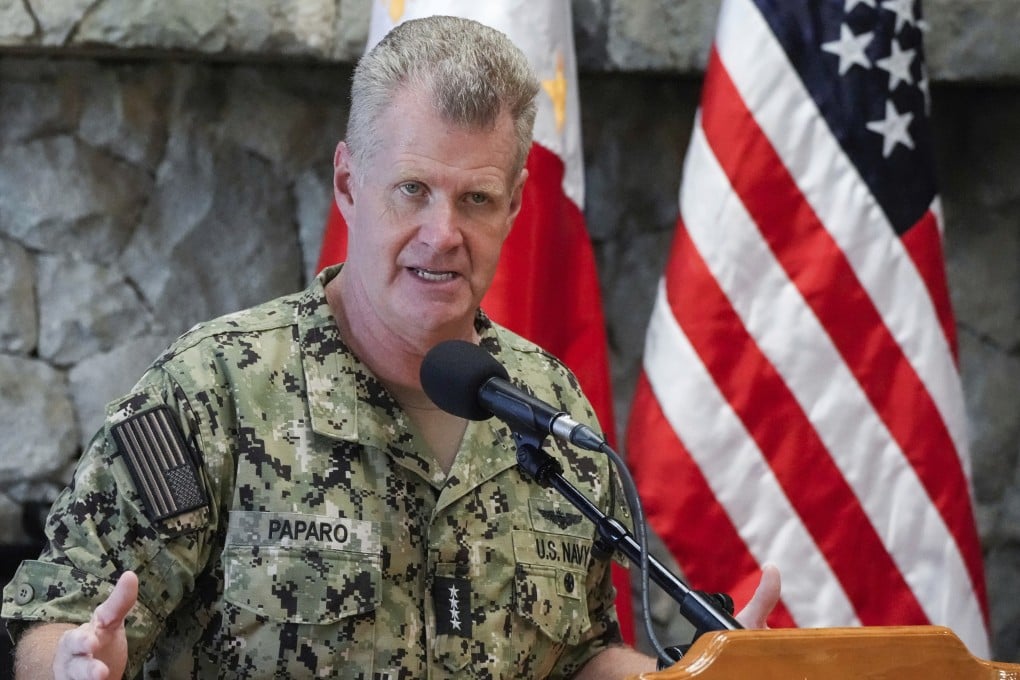Articles in this Cluster
02-06-2025
At Singapore’s Shangri-La Dialogue, Australian Defence Minister Richard Marles urged China to explain its “extraordinary” post–World War II-scale military build-up, calling for strategic transparency and reassurance to the region. He contrasted Australia’s public defence planning with China’s opacity, while noting a recent Chinese exercise near Australia complied with international law despite being disruptive. Marles said Australia is boosting defence spending and progressing AUKUS submarine plans.
Philippines Defence Minister Gilberto Teodoro Jr condemned China as “irresponsible and reckless” in the South China Sea, urging preservation of the rules-based order and continued US–European leadership. The forum, marked by a reduced Chinese presence, featured sharp US criticism of China, which Beijing rebuffed, accusing Washington of hegemonism. China also rejected French President Macron’s comparison of defending Taiwan to Ukraine, reiterating that Taiwan is a domestic issue.
Entities: Australia, China, Richard Marles, Shangri-La Dialogue, AUKUS • Tone: analytical • Sentiment: neutral • Intent: inform
02-06-2025
U.S. Defense Secretary Pete Hegseth, speaking at the Shangri-La Dialogue in Singapore, assured Indo-Pacific allies the U.S. will back them against growing Chinese military and economic pressure, especially around Taiwan, while urging them to boost defense spending and self-reliance. He warned China is actively training for a Taiwan invasion and expanding influence from the South China Sea to Latin America, prompting U.S. investments in space-based missile defenses. China’s delegation rejected his claims as provocative. Hegseth defended recent U.S. force reallocations to the Middle East but reiterated the Indo-Pacific remains a priority, emphasizing allied burden-sharing. Regional partners like Australia welcomed U.S. commitment but criticized U.S. tariff policies; EU officials stressed Europe-Asia security linkages. China sent a lower-level delegation, which the U.S. sought to leverage diplomatically.
Entities: Pete Hegseth, Shangri-La Dialogue, Indo-Pacific, Taiwan, China • Tone: analytical • Sentiment: neutral • Intent: inform
02-06-2025
China’s air force has begun teaching aerial refuelling earlier in pilot training, shifting a skill once reserved for experienced units into its flight academies. CCTV footage showed J-10 fighters refuelling from a YU-20 tanker at the Shijiazhuang Flight Academy, with plans to expand the program in phases. The move aims to accelerate combat readiness, instill long-range operational thinking, and build a larger pool of battle-ready pilots, supporting the PLA’s goal of a strategic air force with global reach.
Entities: People's Liberation Army Air Force, Shijiazhuang Flight Academy, J-10 fighter, YU-20 tanker, CCTV • Tone: analytical • Sentiment: neutral • Intent: inform
02-06-2025
A weekend roundup from SCMP highlights: China rebuked the US at the Shangri-La Dialogue, accusing Washington of destabilizing the Asia-Pacific after sharp exchanges between defense officials; India showcased progress on its AMCA stealth fighter program, positioned as a counter to Pakistan’s Chinese-made jets; and a former Bali bomber sought redemption through a coffee venture in Indonesia. The package also included lifestyle coverage such as standout Indian food in Hong Kong.
Entities: China, United States, Shangri-La Dialogue, Asia-Pacific, India • Tone: analytical • Sentiment: neutral • Intent: inform
02-06-2025
Admiral Samuel Paparo, head of US Indo-Pacific Command, warned that China’s recent operations around Taiwan are “rehearsals,” not just exercises, signaling a “dangerous course” amid a “profoundly consequential time” in the region. He cited increasing PLA activity, including crossings of the Taiwan Strait’s median line, and rising tensions since Taiwanese leader William Lai took office. While reaffirming that the US opposes any forcible takeover and continues to arm Taiwan, Paparo also pointed to growing cooperation among authoritarian states through technology transfers and coordinated military activities.
Entities: Admiral Samuel Paparo, US Indo-Pacific Command, People’s Liberation Army (PLA), Taiwan Strait median line, Taiwan • Tone: analytical • Sentiment: negative • Intent: warn
